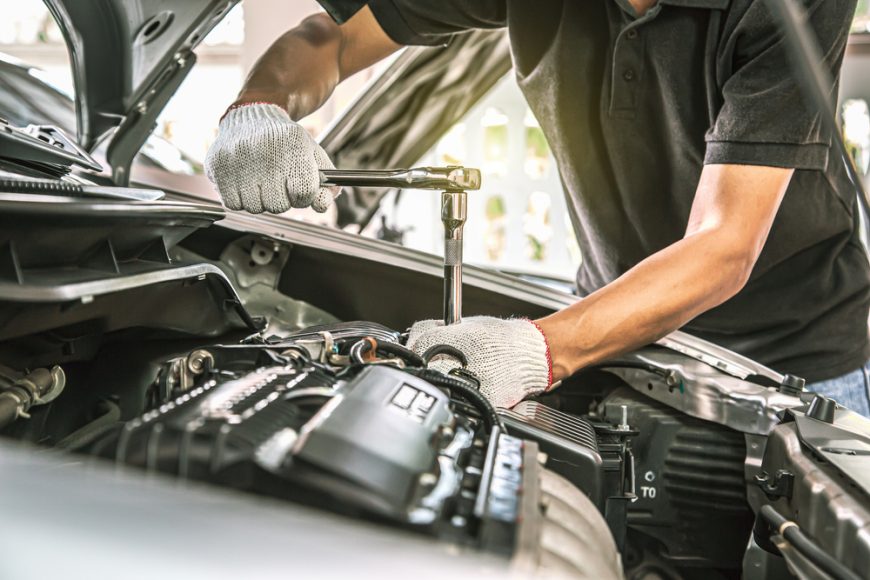Top Diesel Engine Catalytic Converter Repair Tips
Diesel engine catalytic converter repair tips can help ensure the efficient functioning of the converter and optimize engine performance.
Understanding Diesel Engine Catalytic Converters
Function Of Catalytic Converters
Catalytic converters help reduce harmful emissions by converting toxic gases into less harmful substances.
Importance Of Catalytic Converters In Diesel Engines
Catalytic converters play a crucial role in reducing pollution from diesel engines, promoting cleaner air quality.

Credit: www.parkmuffler.com
Common Diesel Engine Catalytic Converter Issues
Diesel engine catalytic converter issues can lead to decreased performance and increased emissions. Regular maintenance and prompt repairs can help prevent problems like clogging and damage to the converter. Professional inspection and cleaning, as well as using high-quality fuel, are key for efficient diesel engine catalytic converter repair.
Clogging
Diesel engine catalytic converters are prone to clogging, which can cause a significant drop in engine performance. This issue occurs when the inner core of the converter becomes obstructed with soot, debris, or other unwanted substances. As a result, the exhaust gases are unable to flow freely, leading to reduced power output and increased fuel consumption. It is crucial to address clogging issues promptly to prevent further damage to the engine.Contamination
Contamination is another common problem that affects diesel engine catalytic converters. This issue arises when harmful substances, such as unburned fuel, engine coolant, or oil, come into contact with the converter’s core. These contaminants can reduce the converter’s efficiency, leading to decreased performance and increased emissions. Regular maintenance and addressing any underlying issues, such as malfunctioning fuel injectors or coolant leaks, can help prevent contamination and extend the lifespan of the catalytic converter.Cracks And Damage
Cracks and physical damage can be a significant concern for diesel engine catalytic converters. These issues may arise due to various factors, including excessive heat, impact, or improper installation. Cracks in the converter’s casing or damage to the core can lead to leaks, reduced efficiency, and even complete failure of the converter. It is crucial to inspect the converter regularly for any signs of damage, such as visible cracks or loose components. Timely repairs or replacements are essential to maintain optimal engine performance.Overheating
Diesel engines often generate higher temperatures than gasoline engines, increasing the risk of overheating the catalytic converter. Overheating can occur due to reasons such as inadequate cooling system maintenance, improper fuel-air mixture, or running the engine at high RPMs for an extended period. When the converter overheats, the catalyst can deteriorate, leading to reduced efficiency and increased emissions. It is vital to address any underlying issues that may contribute to overheating and ensure proper cooling system maintenance to prevent damage to the catalytic converter. To summarize, common issues with diesel engine catalytic converters include clogging, contamination, cracks and damage, and overheating. Regular maintenance, prompt repairs, and addressing any underlying issues are crucial in ensuring the optimal performance and longevity of the catalytic converter. By taking proactive measures, you can avoid costly repairs and ensure your diesel engine operates efficiently while minimizing its impact on the environment.Diagnosing Diesel Engine Catalytic Converter Problems
A properly functioning catalytic converter is crucial for the optimal performance of any diesel engine. However, just like any other component, catalytic converters can encounter issues over time. Therefore, it’s important to be able to diagnose these problems early on to prevent further damage and costly repairs. In this section, we will discuss the symptoms of catalytic converter issues and the diagnostic tools and techniques that can help identify these problems efficiently.
Symptoms Of Catalytic Converter Issues
Identifying potential issues with your diesel engine’s catalytic converter can help you take prompt action and prevent further damage. Here are some common symptoms that may indicate problems with your catalytic converter:
- Decreased engine performance and power
- Increased exhaust emissions
- Unusual odor coming from the exhaust
- Excessive fuel consumption
- Overheating of the converter
- Rattling or metallic noises from the exhaust system
If you notice any of these symptoms, it’s advisable to inspect your catalytic converter for potential issues.
Diagnostic Tools And Techniques
When it comes to diagnosing catalytic converter problems in diesel engines, there are several diagnostic tools and techniques that can be utilized. These tools help identify any malfunctions or blockages in the converter efficiently. Here are some commonly used diagnostic methods:
- Diagnostic Code Scanners: These scanners connect to the On-Board Diagnostics (OBD) port of your vehicle and can read error codes related to the catalytic converter.
- Exhaust Gas Analyzer: This tool measures the levels of various exhaust gases to determine if the converter is functioning properly.
- Visual Inspection: A visual inspection of the catalytic converter can reveal signs of damage, such as cracks or leaks.
- Backpressure Test: By measuring the exhaust system’s backpressure, this test can identify if the converter is clogged or restricted.
- Thermal Imaging: This technique uses thermal imaging cameras to detect temperature irregularities in the catalytic converter, indicating potential problems.
By utilizing these diagnostic tools and techniques, diesel engine owners can effectively pinpoint any catalytic converter problems and take appropriate measures for repair and maintenance.
Repairing Diesel Engine Catalytic Converters
Discover top tips for effectively repairing diesel engine catalytic converters. Enhance efficiency and performance while minimizing emissions. Trust in expert techniques to maintain your vehicle’s environmental friendliness and longevity.
For optimal performance and longevity, cleaning and maintenance of diesel engine catalytic converters are essential. Regular maintenance helps prevent issues and ensures efficiency.Cleaning And Maintenance
Proper cleaning with non-abrasive materials removes built-up debris and contaminants from the catalytic converter. Routine maintenance enhances overall engine performance.Replacement Options
When cleaning is no longer effective, replacement might be necessary. Consider OEM parts or consult with a professional for the best-fit replacement catalytic converter. Regular cleaning and maintenance are crucial for diesel engine catalytic converters to ensure optimal efficiency and performance. Regularly inspecting and cleaning the converter can prevent issues and prolong its lifespan. If cleaning no longer yields results, consider replacing the converter with suitable replacement options like OEM parts or consulting a professional for guidance.Preventive Measures For Diesel Engine Catalytic Converter Maintenance
When it comes to ensuring the efficiency and longevity of your diesel engine catalytic converter, proactive maintenance is key. By implementing preventive measures, you can mitigate the risk of potential issues and prolong the life of your catalytic converter. Let’s delve into the essential preventive measures for diesel engine catalytic converter maintenance.
Regular Inspections
Regular inspections are crucial to detect any potential issues early on. Inspect the catalytic converter for signs of damage or clogging periodically to ensure proper functioning. If you notice any unusual odors or sounds, it’s advisable to conduct a thorough inspection promptly.
Proper Fuel And Oil Usage
The type of fuel and oil used in diesel engines significantly impacts the functioning of the catalytic converter. Always use high-quality fuel to prevent the buildup of deposits that can clog the converter. Additionally, ensure that the oil used meets the recommended specifications to minimize the risk of contamination.

Credit: www.amazon.com

Credit: calmatters.org
Frequently Asked Questions For Top Diesel Engine Catalytic Converter Repair Tips
How Can I Make My Catalytic Converter Work Better?
To improve the performance of your catalytic converter: 1. Use high-quality, unleaded gasoline. 2. Replace the oxygen sensor regularly. 3. Ensure the engine is properly tuned. 4. Fix any exhaust leaks. 5. Keep the converter clean by avoiding excessive oil and fuel additives.
Can A Damaged Catalytic Converter Be Repaired?
Yes, a damaged catalytic converter can be repaired.
How To Fix A Clogged Catalytic Converter Without Removing It?
To fix a clogged catalytic converter without removal, use a catalytic converter cleaner additive. Simply pour it into the gas tank to dissolve build-up and improve performance.
What Is The Best Diesel Catalytic Converter Cleaner?
The best diesel catalytic converter cleaner is one that effectively removes carbon deposits and restores efficiency. Look for a product with positive customer reviews and proven results. Regular use can help maintain optimum performance of your diesel catalytic converter.
Conclusion
Maintaining your diesel engine’s catalytic converter is crucial for optimal performance. Regular inspections and timely repairs can extend its lifespan. Remember to seek professional help for complex issues. By following these repair tips, you can ensure your diesel engine operates efficiently and eco-friendly.

